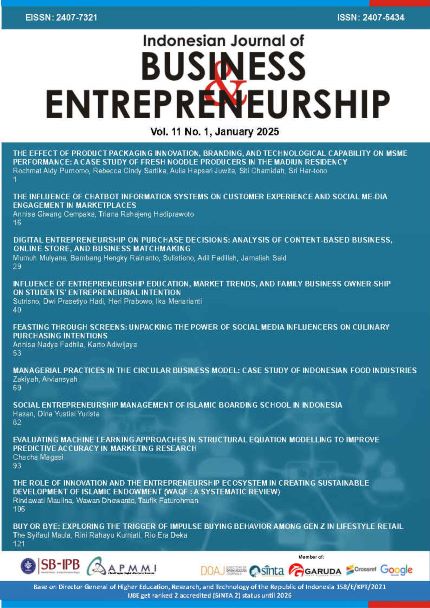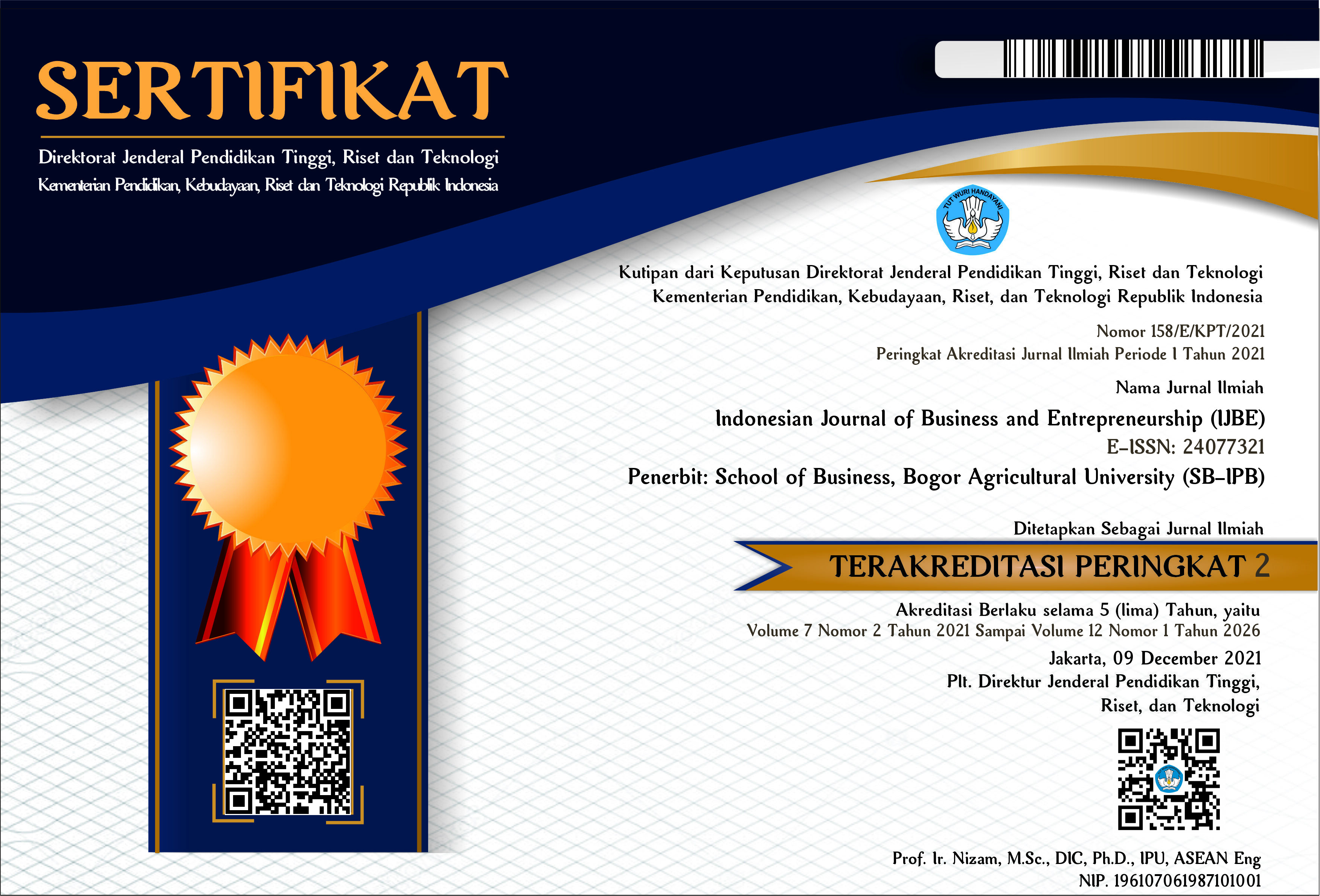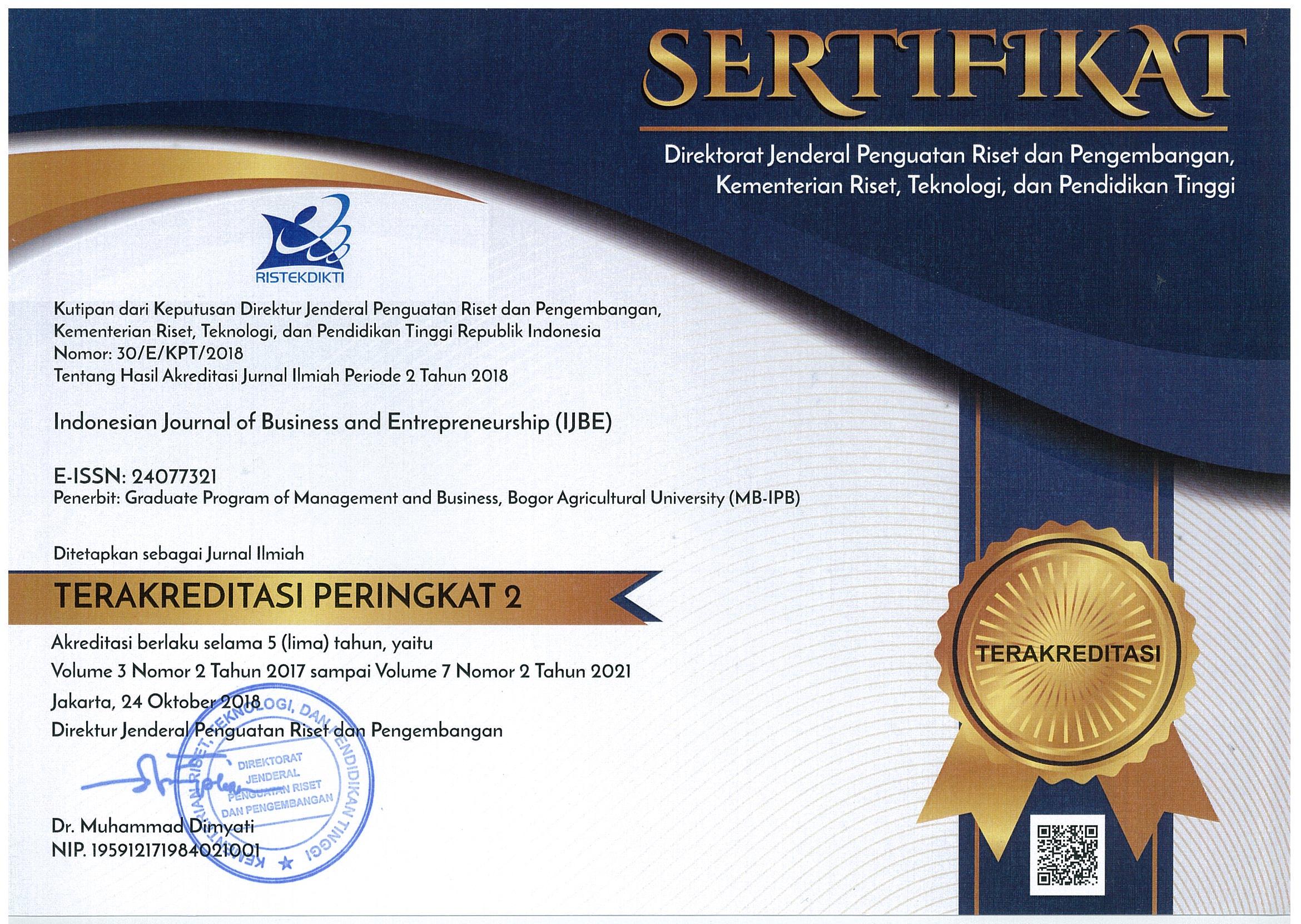Managerial Practices in The Circular Business Model: Case Study of Indonesian Food Industries
Abstract
Background: The circular economy is an emerging paradigm designed to address sustainable economic development challenges in Indonesia. At the micro-level, it emphasizes managerial practices in adopting and implementing circular business models.
Purpose: This study uses a case study approach to analyze three Indonesian food companies that have incorporated circular economy principles into their operations.
Design/methodology/approach: A qualitative approach is utilized, employing semi-structured interview methods to gather in-depth and detailed information.
Results: The research identifies managerial practices through a taxonomic framework of circular business model dimensions, focusing on value creation and capture. Managerial practices vary across the three companies based on the nature of their products and waste management processes.
Conclusion: The findings underscore the need to strengthen the ecosystem through collaborative efforts among the industrial sector, government, and other institutions.
Originality/value (State of Art): This is the first multicase study in Indonesia to explore managerial practices in circular business models at the micro level, specifically within the food industry.
Keywords: circular economy, business model, managerial practices, food industry, external factor








